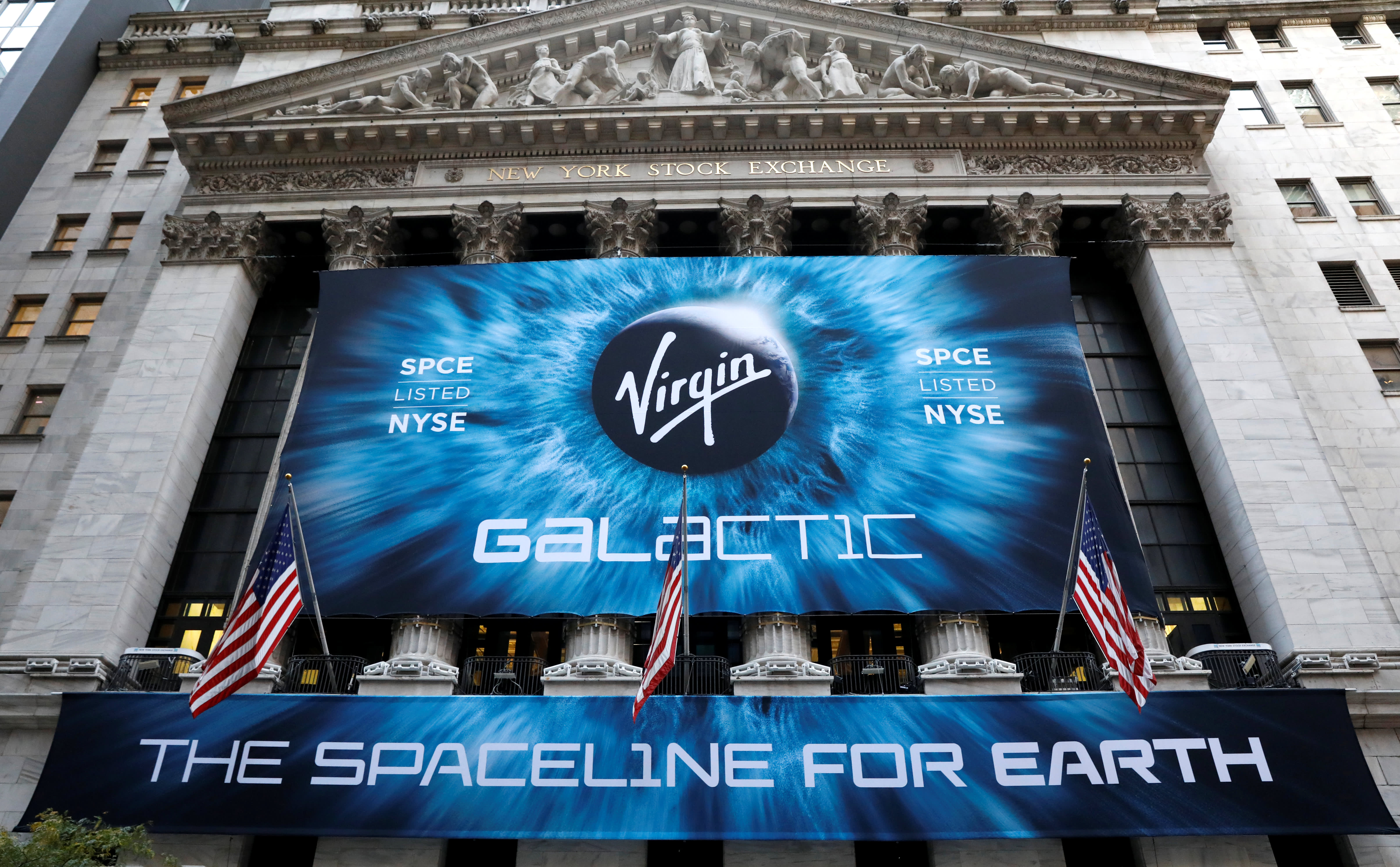A Banner hangs outside the New York Stock Exchange (NYSE) ahead of the Virgin Galactic (SPCE) IPO in New York, U.S., October 28, 2019.
Brendan McDermid | Reuters
Virgin Galactic delivered fourth quarter results after the market closed on Thursday, with the company disclosing its next spaceflight test is delayed to May and pushing the beginning of flying passengers to early 2022.
The company was targeting as early as Feb. 13 for the spaceflight test of its SpaceShipTwo vehicle “Unity,” which represents a repeat of its flight attempt in December that was cut short by an engine anomaly. Virgin Galactic’s investor presentation disclosed that it “identified EMI as the root cause” of the December engine flight abort, with “additional EMI impacts” uncovered during preparations for the Feb. 13 reflight.
While only two pilots will be on board, the flight is expected to be the first of three as the company seeks to finish developing its spacecraft system and begin flying paying passengers.
Shares of Virgin Galactic fell as much as 15% in after hours trading, after having fallen 8.4% during the day to close at $42.24 a share.
Virgin Galactic CEO Michael Colglazier told shareholders on the earnings conference call that the company now does not expect commercial service will begin until early 2022. While Colglazier declined to place specific dates on the schedule for the three test flights remaining for Unity, he expects the third flight carrying Sir Richard Branson will “occur this summer.”
The company then plans to conduct a four month “analysis and refurbishment period” on Unity, its carrier aircraft Eve, and the next spacecraft known as SpaceShip III.
“At the conclusion of this period, we expect VSS Unity will begin flying private astronauts, and SpaceShip III will be in a position to complete its flight testing, which we expect to be in early ’22,” Colglazier said.
Virgin Galactic’s spacecraft Unity glides in for a landing after a flight test in New Mexico on June 25, 2020.
Virgin Galactic
The space tourism company reported an adjusted EBITDA loss of $59.5 million, down slightly from a loss of $66 million in the previous quarter. The company booked $0 of revenue in the quarter, as it did in the prior quarter. Virgin Galactic’s fourth quarter loss of $0.31 a share was in line with expectations from analysts surveyed by Refinitiv.
“We did not generate significant revenue in 2020,” Virgin Galactic CFO Jon Campagna said on the earnings call.
The company has about $666 million in cash on hand as of the end of the year, down from about $742 million in the third quarter.
Virgin Galactic also said it will roll out the next spacecraft in its fleet, and the first of the SpaceShip III generation, on March 30. That next spacecraft will begin flight tests this summer.
The company announced earlier on Thursday that Campagna is stepping down, effective on Monday. He will be succeeded by Doug Ahrens, former CFO of semiconductor specialist Mellanox.
Virgin Galactic disclosed in a securities filing that James Ryans, a director of Social Capital Hedosophia Holdings, resigned from the company’s board of directors on Feb. 22. He was replaced by Gil West, the chief operating office of General Motor’s Cruise division.
Subscribe to CNBC PRO for exclusive insights and analysis, and live business day programming from around the world.
